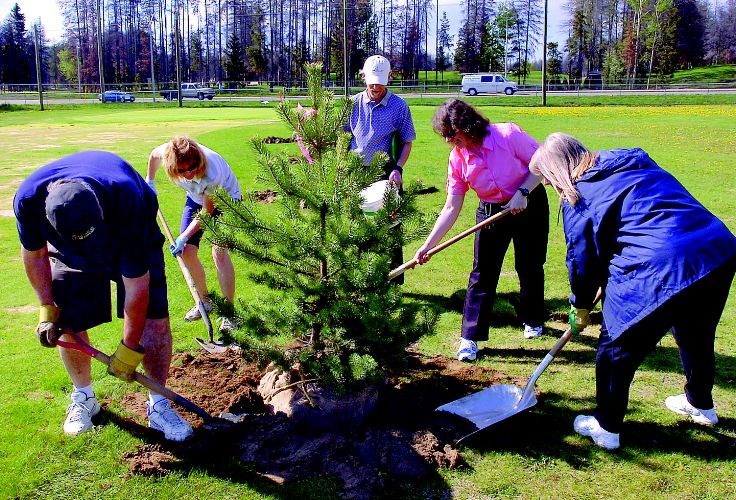City council will be urged to think twice about selling Pine Valley Golf Course on Monday night.
That's when the Friends of Pine Valley Golf Course say they will put forward their arguments against the idea, proposed by accounting firm KPMG during the core review process.
Pointing to estimates made when the idea was previously considered a few years ago, KPMG noted selling the land could put the city ahead by $14 million to $17 million once development costs are taken into account.
KPMG also claims that while the course has generally recovered its operating costs, that may become increasingly difficult as the number of rounds played there has declined.
And it says it will require $1.3 million in upgrades by 2015 if it continues to operate.
As a result, KPMG concluded city council should "strongly consider terminating the operation of Pine Valley as a golf course and develop appropriate options for its sale and development."
But Don Chamberlain and Gary Peacock contend the city will lose an asset that's more valuable in other ways if council takes that route, saying it would be a step back to sell the course for short-term financial gain.
For one thing, it's a great place to learn the game.
"There's no other course like it in town," Chamberlain said Wednesday. "It's flat, it's accessible, it's affordable, there are no hazards, you can take your five- or six-year-old grandkids out there and teach them how to golf."
Selling the course would also mean plenty of volunteer labour has been wasted as more than 6,800 seedlings, 180 mature trees and a variety of plants and shrubs have been planted since the mountain pine beetle landed at Pine Valley and the neighbouring Prince George Golf and Curling Club.
"We've put more money-wise into that course than what the city has, if you added up all the tree planters wages when they came in and did it for free," Peacock claimed.
Even if the city made up the loss by establishing a similar course elsewhere, they say it still wouldn't be as good because of the current course's central location. Peacock, a retired physical education teacher, said the course is in good proximity to most schools in the district and relocating it to either end of the city will take away that convenience.
And he argued Pine Valley actually benefits the privately-owned courses by providing a place where young players can develop their games before graduating to the larger, more challenging courses.
However, KPMG has suggested the loss of Pine Valley could be made up by introducing a "tee it forward" option at PGGCC where golfers can play a course length in accordance with their average drive length.
Chamberlain and Peacock, meanwhile, questioned whether the land can be sold for the amounts suggested, noting PGGCC has stayed put after it was unable to find a buyer for its current home.
Friends of Pine Valley found themselves in a similar fight in 2010, when PGGCC was still considering moving to a new location, before council backed away from selling the site as part of a plan to redevelop the area into a mixture of commercial and residential uses.
They say the course should be given the same treatment as other city-owned recreational facilities, most of which receive significant subsidies through the property tax levy to make up annual shortfalls.
And they say talk that the PGGCC's driving range may be closed and sold means Pine Valley should get back into that aspect of the business, saying it generated $80,000 to $100,000 for the city when a driving range was previously in place. Installing a driving range is part of the $1.3 million in upgrades planned for Pine Valley.
Rather than sell the course, they want council to endorse another possibility raised by KPMG - to improve the course's marketing, although KPMG expressed doubts that increasing the price for a round of golf at Pine Valley would generate additional revenue rather than drive players away.



.png;w=120;h=80;mode=crop)